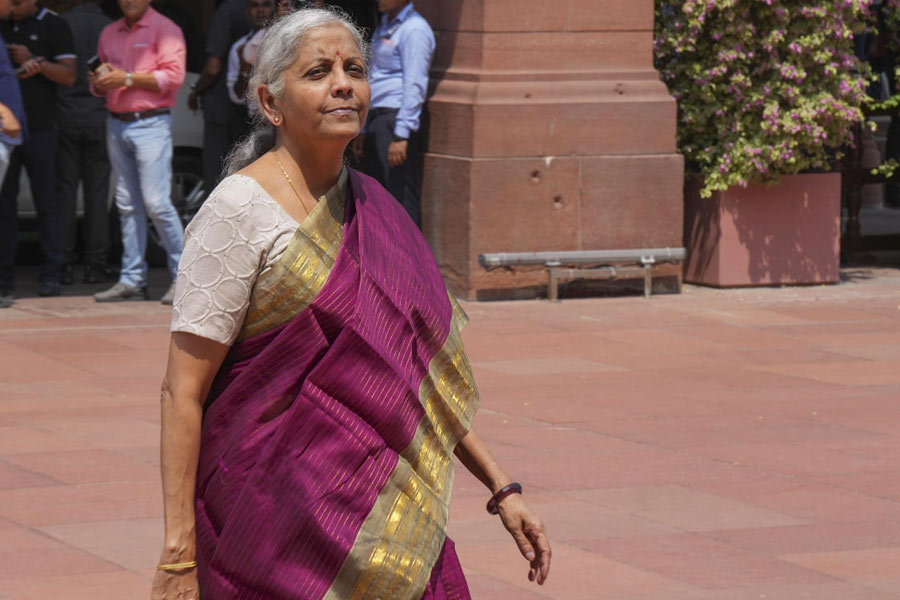Finance minister Nirmala Sitharaman on Wednesday put a staunch defence of her budget, saying it has eased the tax burden on the middle class and the relaxing of capital gains tax provision on property transaction was a reflection of the government accepting the common man's expectations.
Replying to a debate on Finance Bill (No.2), 2024 in the Lok Sabha on Wednesday, she said the tax incidence on the middle class has been reduced with the increase in standard deduction by 50 per cent and the budget brings about the simplification of the tax regime without raising rates.
With the Opposition parties using her colleague and Union minister Nitin Gadkari's demand for reduction in GST on health insurance premium to attack the government, Sitharaman said states levied taxes on premiums before the uniform GST came into being in 2017.
Parliament, she said, was not the forum to decide the GST rates and it has to go to a council where the states have two-third representation.
After the reply, the Lower House passed by voice vote the bill including 45 amendments.
The Finance Bill 2024 will now go to the Rajya Sabha for discussion.
Opposition MPs staged a walkout from the Lok Sabha after an amendment moved by RSP member N.K. Premachandran seeking withdrawal of 18 per cent GST on medical and life insurance premiums was not taken up.
The major amendment was on the levy of long-term capital gains (LTCG) tax on immovable property transactions.
The amendment in Finance Bill relating to LTCG tax restored the indexation benefit on the sale of properties bought prior to July 23, 2024.
Now, individuals or HuFs who purchased houses before July 23, 2024, can opt to pay LTCG tax under the new scheme at the rate of 12.5 per cent without indexation or claim the indexation benefit and pay 20 per cent tax.
Sitharaman in her budget for 2024-25 had lowered the LTCG tax on real estate to 12.5 per cent from 20 per cent without the indexation benefit. This had come in for criticism particularly from the middle class who felt the LTCG tax liability has been increased.
"The middle class has been in our mind even then. It is now in our mind even now, even after bringing this indexation provision. Yes, for all those who sit and ask me this question, I will repeat. It was no revenue consideration for which we removed the indexation provision. We wanted to bring in simplification. We wanted to treat all asset class equal, and therefore, we brought it in," the FM said.
Narayan Jain, president of the All India Federation of Tax Practitioners, said: "Under existing provisions, taxpayers can substitute the cost of property bought before April 2001 with its fair market value as of April 1, 2001. Indexation benefits apply from 2001. For properties bought before July 23, 2024, taxpayers can opt for 12.5 per cent tax without indexation or 20 per cent tax with indexation. However, properties acquired after July 23, 2024, will be taxed at 12.5 per cent without indexation."
According to Anuj Puri, chairman of Anarock group, "This change offers homeowners the flexibility in their tax liabilities. For long-held properties where inflation significantly increased the value, opting for the 20 per cent tax rate with indexation could reduce the taxable gain and overall tax burden. For properties held for shorter periods or during low inflation, the 12.5 per cent rate without indexation might be more beneficial."
GST standoff
In response to demands for removing GST on health and life insurance premiums, Sitharaman clarified that about 75 per cent of GST collection goes to states.
She said that before the 18 per cent GST on health insurance premiums, states levied taxes on these premiums. When GST was implemented, the tax was subsumed into GST.










